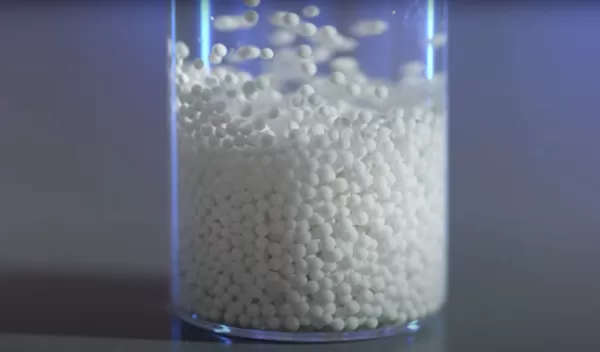
'Drug factory' implants eliminate mesothelioma tumors in mice
Researchers at Rice University and Baylor College of Medicine have shown they can eradicate advanced-stage mesothelioma tumors in mice in just a few days with a treatment combining Rice's cytokine "drug factory" implants and a checkpoint inhibitor drug. Mesothelioma refers to any cancer that occurs in the tissue linings that surround and protect internal organs.
The researchers administered drug-producing beads, which are no larger than the head of a pin, next to tumors where they could produce continuous, high doses of interleukin-2, IL-2, a natural compound that activates white blood cells to fight cancer.
The study, supported in part by the U.S. National Science Foundation and published online in Clinical Cancer Research, is the latest in a string of successes for the drug-factory technology invented in the lab of Rice bioengineer Omid Veiseh, including Food and Drug Administration approval to begin clinical trials of the technology this fall in ovarian cancer patients.
"From the beginning, our objective was to develop a platform therapy that can be used for multiple different types of immune system disorders or different types of cancers," said Amanda Nash, an NSF Graduate Research Fellow and member of the Rice research team, who spent several years developing the implant technology with the study's co-lead author Samira Aghlara-Fotovat, a fellow team member in Veiseh's lab.
The cytokine factories consist of alginate beads loaded with tens of thousands of cells that are genetically engineered to produce natural IL-2, one of two cytokines the FDA has approved for treatment of cancer. The factories are just 1.5 millimeters wide and can be implanted with minimally invasive surgery to deliver high doses of IL-2 directly to tumors.
"I take care of patients who have malignant pleural mesothelioma," said Bryan Burt of Baylor College of Medicine. "This is a very aggressive malignancy of the lining of the lungs. And it's very hard to treat completely by surgical resection. In other words, there is often residual disease that is left behind. The treatment of this residual disease with local immunotherapy — the local delivery of relatively high doses of immunotherapy to that pleural space — is a very attractive way to treat this disease."
Immunotherapy with drugs called "checkpoint inhibitors" has met with some success in treating mesothelioma. Checkpoint inhibitors don't kill cancer directly but rather train the immune system to recognize and destroy cancer cells.
In the mesothelioma study, tumors were destroyed completely in all seven mice that were treated with both the drug factory implants and a checkpoint inhibitor.
In addition to the cancer research, Veiseh is studying cytokine implants' potential for healing injuries caused by heart attacks.
